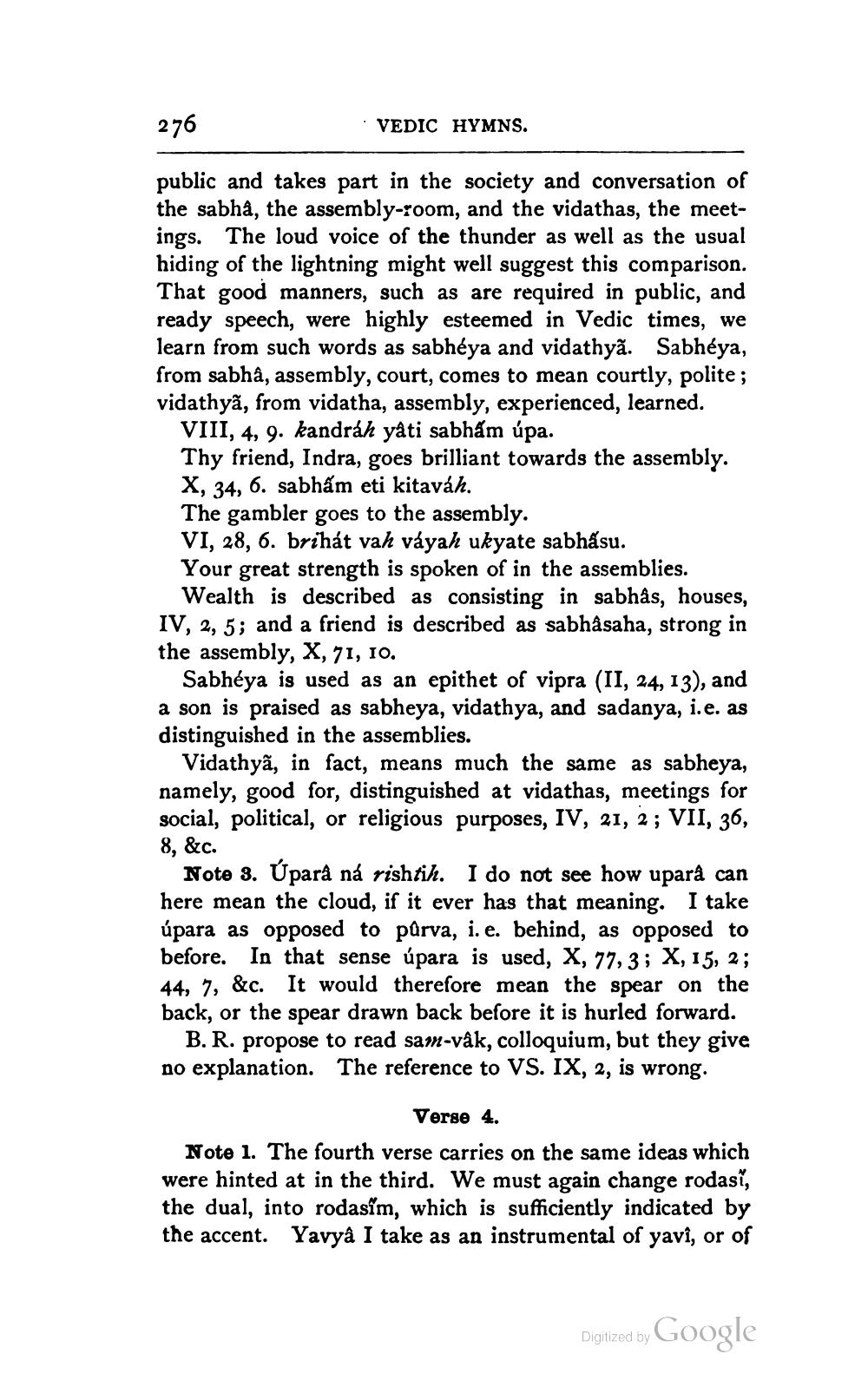________________
276
VEDIC HYMNS.
public and takes part in the society and conversation of the sabha, the assembly-room, and the vidathas, the meetings. The loud voice of the thunder as well as the usual hiding of the lightning might well suggest this comparison. That good manners, such as are required in public, and ready speech, were highly esteemed in Vedic times, we learn from such words as sabhéya and vidathyã. Sabhéya, from sabhå, assembly, court, comes to mean courtly, polite; vidathyã, from vidatha, assembly, experienced, learned.
VIII, 4, 9. kandráh yati sabhám úpa. Thy friend, Indra, goes brilliant towards the assembly. X, 34, 6. sabhấm eti kitaváh. The gambler goes to the assembly. VI, 28, 6. brihát vah váyah ukyate sabhásu. Your great strength is spoken of in the assemblies. Wealth is described as consisting in sabhas, houses, IV, 2, 5; and a friend is described as sabhâsaha, strong in the assembly, X, 71, 10.
Sabhéya is used as an epithet of vipra (II, 24, 13), and a son is praised as sabheya, vidathya, and sadanya, i.e. as distinguished in the assemblies.
Vidathyā, in fact, means much the same as sabheya, namely, good for, distinguished at vidathas, meetings for social, political, or religious purposes, IV, 21, 2; VII, 36, 8, &c.
Note 3. Úpará ná rishtih. I do not see how uparà can here mean the cloud, if it ever has that meaning. I take úpara as opposed to půrva, i.e. behind, as opposed to before. In that sense úpara is used, X, 77, 3; X, 15, 2; 44, 7, &c. It would therefore mean the spear on the back, or the spear drawn back before it is hurled forward.
B.R. propose to read sam-vâk, colloquium, but they give no explanation. The reference to VS. IX, 2, is wrong.
Verse 4. Note 1. The fourth verse carries on the same ideas which were hinted at in the third. We must again change rodasi, the dual, into rodasím, which is sufficiently indicated by the accent. Yavyâ I take as an instrumental of yavi, or of
Digitized by
Digilzed by Google




